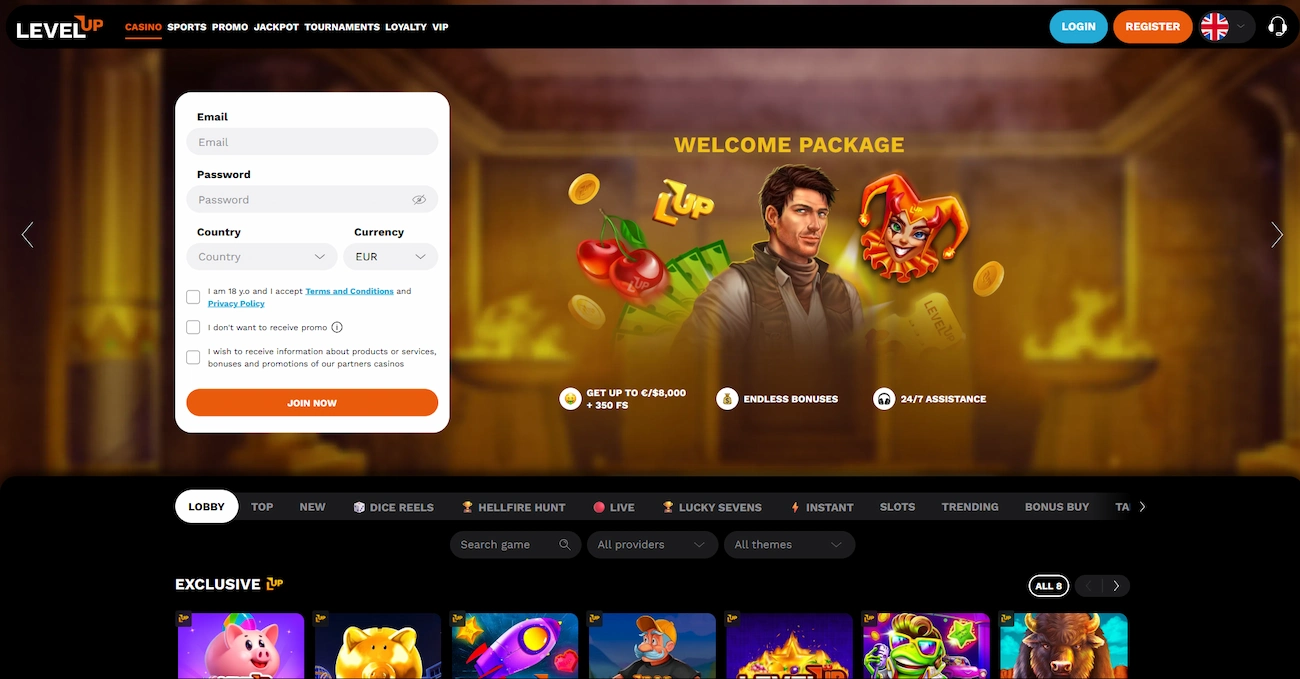Summary Table: Key Terms That Impact Your Gaming Experience
| Topic | Why It Matters | Impact Level | Explanation |
|---|---|---|---|
| Wagering Requirements | Applies to bonus and sometimes deposit funds | High | Limits cashout flexibility and delays withdrawals until playthrough is completed |
| Bonus Abuse Handling | Broad discretion with vague definitions | High | No clear criteria for abuse; winnings can be removed without recourse |
| Multi-Account Restrictions | One account per user/IP/device enforced strictly | High | Players in shared households can be banned without advance notice |
| VPN and Geo-Access Rules | VPN usage can lead to seizure of funds | High | Even privacy-based VPN use is considered a breach |
| Identity and Withdrawal Checks | Verification includes ID, selfie, utility bill, and potential video call | High | Delays are common, especially on large withdrawals or activity spikes |
| Withdrawal Limits | Daily, weekly, and monthly payout caps | High | Big wins may be split into slow installments |
| Dormancy and Inactivity | Monthly fees apply after 12 months of no activity | Medium | Accounts quietly drained if players are absent for long periods |
| Data Privacy | Personal info is shared with third parties | Medium | No direct user tools for managing, deleting, or exporting data |
| Dispute Resolution | Internal-only resolution with no third-party mediation | High | Players have no neutral channel to challenge casino decisions |
Bonuses That Bind More Than They Give
LevelUp Casino greets new players with an attractive multi-part welcome package and regular reload offers, but its bonus mechanics come with strict wagering rules that can catch users off guard. Most bonuses have a 40x wagering requirement applied to the bonus amount, not including the deposit. However, some reload bonuses and promotions also lock the deposit until wagering is completed, making it hard to distinguish between bonus and cash funds during active play.
Maximum bet caps are imposed during bonus wagering, usually set around €5 per spin or €1 per line. Breaching this rule even once can void all winnings. The issue is that there’s no live warning or in-game alert when bets exceed this limit, meaning players may unknowingly breach the terms while switching between games or increasing stakes mid-session.
Game contribution rates to wagering vary, and most bonuses exclude entire categories like table games, live dealers, and progressive slots. Moreover, the list of restricted games is not embedded in the bonus offer itself but buried in a general clause, forcing users to manually verify each game’s eligibility.
Loose Definitions, Tight Penalties
LevelUp enforces bonus abuse policies but does not clearly define what constitutes abuse. The Terms mention behaviors like “irregular play,” “bonus misuse,” or “fraudulent advantage,” yet fail to explain these in actionable terms. In practice, this gives the operator wide leeway to cancel bonuses or confiscate winnings without much justification.
Common behaviors that risk triggering abuse flags include:
• Depositing only to claim a bonus and withdrawing immediately after wagering
• Using systematic or progressive betting strategies
• Switching games repeatedly during wagering to minimize variance
The casino reserves the right to withhold winnings retroactively, even if the bonus was claimed and used in good faith. This puts players at a disadvantage during disputes, as there is no clear standard by which play is measured.
Shared Networks, One Player Rule
A strict one-account policy is enforced at LevelUp Casino. Each player may register only one account, and multiple accounts from the same IP address or device are prohibited. This is particularly problematic in households where multiple users may legitimately wish to play. There is no stated option to pre-clear multiple accounts within one household, which increases the risk of innocent users being penalized.
If the system detects duplicate accounts, both may be suspended and any associated balances confiscated. Even attempting to reopen a previously closed account under the same identity may be treated as a violation. The platform lacks a clear appeals process for such cases.
Don’t Mask Your Location
LevelUp explicitly bans the use of VPNs, proxy services, or any method that hides a user’s location. Accessing the site from restricted territories even unintentionally through such tools may result in account suspension and fund forfeiture. This policy includes users who travel abroad, use mobile hotspots, or engage VPNs for privacy reasons.
Once a breach is detected, there is no mechanism for appeal or proof of legitimate intent. This creates risk for users relying on privacy tools or those playing while abroad, particularly when using crypto wallets which don’t inherently reveal jurisdiction.
Verification Demands Can Escalate
As is typical for licensed operators, LevelUp Casino requires identity verification. This includes standard document uploads: government-issued ID, utility bill, and sometimes a payment method screenshot. What’s less predictable is the site’s escalation policy. If a player wins a large amount, attempts frequent withdrawals, or changes devices often, the KYC process may expand to include a selfie with the ID or even a live video interview with support.
There is no published timeframe for completing verification, and during this phase, withdrawal requests are placed on hold. If submitted documents are rejected due to blurry images, mismatch in names, or missing date stamp support does not expedite re-review. Delays of multiple days are common.
Adding to the uncertainty, users cannot voluntarily complete full verification in advance. The process only begins once withdrawals are requested or suspicious behavior is flagged. This reactive system risks turning withdrawal requests into prolonged support cases.
Withdrawals: How Fast and How Much?
Withdrawals are subject to tiered limits. Standard users face restrictions like:
• €3,000 per day
• €6,000 per week
• €15,000 per month
These caps apply to total account winnings, including jackpot and bonus-derived amounts. Even if a user wins a large payout, the release is staggered across time. VIP users may negotiate higher limits, but the Terms do not disclose thresholds for such upgrades.
If the withdrawal method differs from the deposit method for instance, depositing with a credit card but withdrawing to crypto the casino may request additional verification and delay processing. This discourages flexible banking and introduces friction for users with evolving payment needs.
LevelUp also notes that its payment team operates only during business hours, which may delay weekend or late-night cashouts. Cryptocurrency payouts, while faster, are still subject to manual review and may be delayed pending blockchain confirmations and security audits.
The Cost of Inactivity
After 12 consecutive months of account inactivity, LevelUp Casino begins deducting a monthly maintenance fee from the user’s remaining balance. These deductions continue until the balance reaches zero or the account is reactivated by logging in. The Terms do not promise to notify users before the fees begin, nor is there a grace period or final warning.
This system risks silently draining balances from casual players who deposit infrequently or take breaks from gambling. Even if a balance remains untouched, the funds are not protected unless the user remains actively logged in.
What Happens to Your Data
The platform collects identifiable data including user documents, IP address logs, transactional history, device information, and behavioral profiles. This data is stored on servers that may be operated by third parties, and the Terms confirm that user information may be shared with affiliates, service providers, and fraud prevention databases.
There is no built-in tool for managing or deleting stored data. Users cannot download their profile, opt out of non-essential tracking, or select data-sharing preferences. Requests for data access must go through customer support and are processed manually.
LevelUp does not provide detailed information on compliance with global privacy laws such as GDPR or CCPA, and there is no published Data Protection Officer (DPO) contact for privacy-related inquiries. Once data is uploaded, control effectively passes to the operator.
Disputes Stay In-House
If a disagreement arises regarding game outcomes, withdrawal holds, or bonus issues, LevelUp handles the case internally. The Terms declare that the casino’s game server logs are final and binding. There is no mention of an independent dispute resolution service or access to an accredited gambling ombudsman.
This internal-only model creates an imbalance where the operator acts as both party and judge in any disagreement. Players who believe they’ve been treated unfairly have no formal recourse beyond repeated contact with the same support structure. For serious disputes especially those involving seized funds or terminated accounts this creates a dead end.
Recommendations for LevelUp Players
For users who want to play safely and minimize issues with LevelUp’s Terms, a proactive approach is essential. Here are key tips:
• Read bonus rules in full before opting in; avoid switching games during wagering
• Never activate a VPN while logged in, even for general privacy
• Complete verification early to prevent cashout delays
• Use consistent devices and IPs, especially during withdrawals
• Stick to a single payment method unless switching is absolutely necessary
• Don’t abandon your account even small balances may be lost over time
LevelUp Casino offers a polished platform and generous promotions, but its Terms and Conditions are loaded with clauses that favor the operator. The bonus system is enticing but demanding, the withdrawal process structured yet rigid, and the dispute mechanism offers no external checks. For meticulous players who stay within boundaries and keep detailed records, the risks can be managed. But casual users or newcomers unfamiliar with bonus systems may find the platform more punishing than rewarding.



